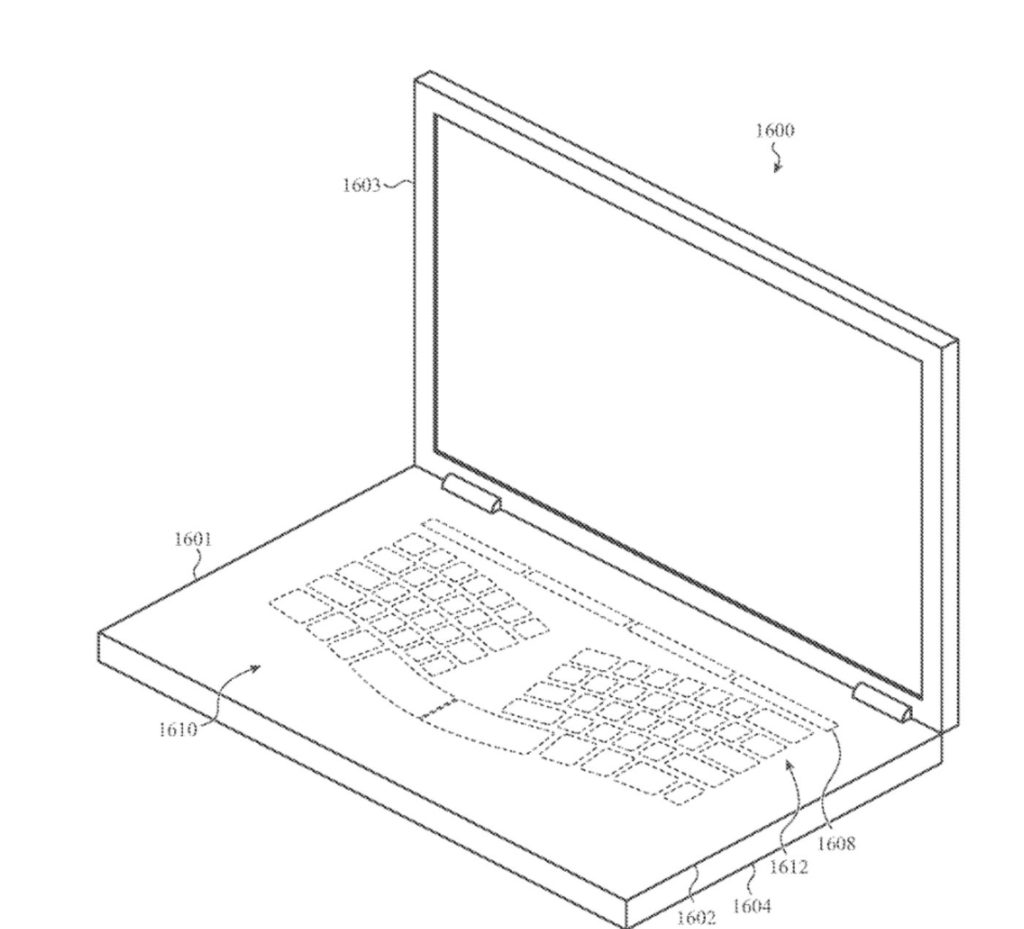Apple has filed for a patent (number 20220326777) for a “device having an integrated interface system.” It involves a future MacBook Pro made of a single pane of glass that could have a virtual keyboard, virtual trackpad, be able to charge an iPhone, and have a spot for an attachable game device.
About the patent filing
The patent filing involves a laptop with an enclosure formed at least partially from a transparent such as glass (other options include plastic or a ceramic material). The transparent dielectric material may form a continuous or seamless input surface that may improve the look and feel of the device without having the drawbacks of some traditional device constructions.
In addition to the main display, the laptop may sport a second display within the base portion that’s viewable through the top case. This display could show a virtual keyboard and a virtual trackpad. I’m assuming that these would be the standard input devices, although the patent mentions a magnetically attachable keyboard. And, of course, you could certainly pair a wireless mouse or trackpad.
What’s more, part of the laptop’s surface could be used to charge a device such as an iPhone. It would even offer the ability to magnetically attach a game controller.
Summary of the patent filing
Here’s Apple’s abstract of the patent filing: “A portable computer includes a display portion comprising a display and a base portion pivotally coupled to the display portion. The base portion may include a bottom case and a top case, formed from a dielectric material, coupled to the bottom case.
“The top case may include a top member defining a top surface of the base portion and a sidewall integrally formed with the top member and defining a side surface of the base portion. The portable computer may also include a sensing system including a first sensing system configured to determine a location of a touch input applied to the top surface of the base portion and a second sensing system configured to determine a force of the touch input.”
Article provided with permission from AppleWorld.Today

